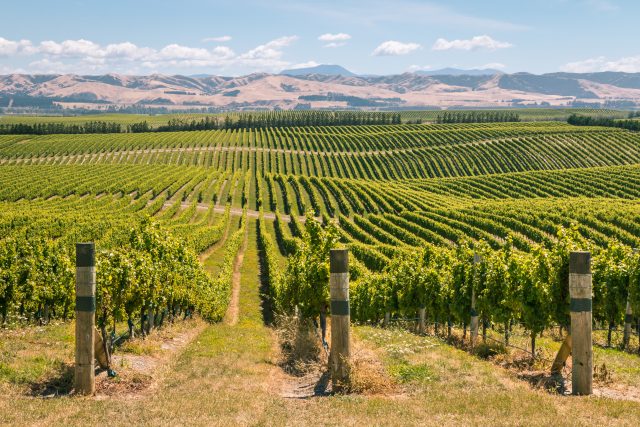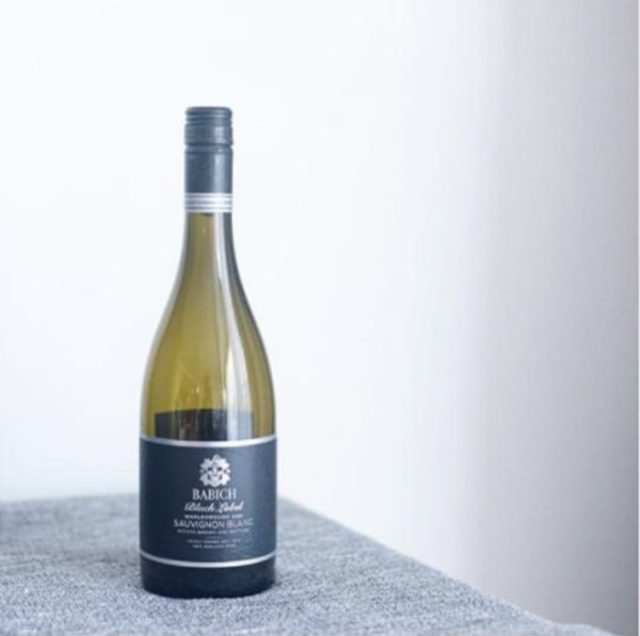This website uses cookies so that we can provide you with the best user experience possible. Cookie information is stored in your browser and performs functions such as recognising you when you return to our website and helping our team to understand which sections of the website you find most interesting and useful.
Is Marlborough’s land already compromised?
David Babich, CEO of New Zealand’s Babich Wines, tells db why it’s becoming increasingly challenging to expand in Marlborough.

With plantings in Marlborough, New Zealand, having grown exponentially during the last 50 years, it’s hardly breaking news that there may not be copious land left to go around. But according to the CEO of Babich Wines, which owns 449 hectares in Marlborough, the real issue is not one of overplanting, but of the quality of the land that is available to buy.
Speaking to the drinks business at a recent vertical tasting of Babich Sauvignon Blanc in London featuring expressions stretching back 15 years, David Babich said he could not envision a time when Marlborough would put a stop to new plantings.
“There wouldn’t be a mandate to prevent further plantings because New Zealand doesn’t work like that,” he said. “It would more likely be an issue of not being able to buy land to plant, which is becoming increasingly difficult.”
According to Babich, who distributes his organic wines via Berkmann Cellars in the UK, the odds of buying vineyards are stacked against international buyers “as it’s much faster to sell land locally.”
He also noted that “it is already hard to buy land in Marlborough that hasn’t been compromised, either by frost or lack of water.”
For this reason among others, Babich believes that organic, single-vineyard wines are the future of Marlborough and insists that “all wineries are capable of making reserve-level wines”, should they choose to do so.
“Any ‘pan-Marlborough’ wine, where you’re taking wine from 100 different vineyards, is going to start getting pretty homogenous in terms of flavour,” he said. “There’s no real terroir associated with it, other than that of the broadly sweeping ‘Marlborough’ region. With organic wines, they tend to be single-vineyard by nature so they are not being diluted by cross-terroir.”
Babich explains the higher retail price of his organic wines (around £13.99 per bottle in Waitrose) as being necessary to plug the gap between the yields of conventionally-made Sauvignon, and organically-made Sauvignon.
“If our normal vineyard crops at 15 tonnes, and our organic vineyard crops at 11 tonnes, we’re missing four tonnes of grapes, so we need to price those wines higher,” he said.
However, with Marlborough Sauvignon Blanc, he reckons, you’re getting what you pay for.
“All those extra dollars really do go into the wine itself. A wine at £13 or £14 per bottle is one that has been vetted and the winemaker knows that it’s great value at it’s price point.”
Above the £20 mark is perhaps another story.
“There’s very little you can do beyond £20 to create a superior quality Sauvignon Blanc. The curve starts flattening out. But if we’re talking about Pinot Noir, that’s different.”

Structurally sound
Babich is crystal clear about his priority, which is to make “good, structurally refined wines that remain stable over time.”
And while he has no plans as yet to put the words “will reward cellaring” on the back label of his wines, they are tasting beautifully for up to 15 years, as the vertical tasting demonstrated.
“Citrus and tropical flavours are right up there on the stable spectrum, which is why they’re so commercially popular. It’s all about getting the PH right, which for us is under 3.5,” he revealed.
He uses a mix of wild and inoculated ferments, and strictly no oak. “Occasionally, we use 20%-30% malolactic to drop the acid but we prefer to do that on the grapevine.”
Speaking of his organic vines, Babich explained that “vines have thicker skins when farmed organically because you’re not protecting them artificially so they have to protect themselves. It means they are more resistant to disease but they can be scrawnier. They’re not as robust as you’re not using fertiliser, so we do a lot of work on vine strength.”
Those precious Marlborough assets are certainly worth protecting as Babich Wines felt the full force of Cyclone Gabrielle when it hit the producer’s five vineyards in Hawke’s Bay earlier this year. David described the scenes as being “like a warzone” and said that rows of vines had either fallen over or “floated away”.
Ruminating on how climate change is presenting an ever ferocious challenge for winemakers, he remarked: “The one constant is the land. The least constant is the weather.”

